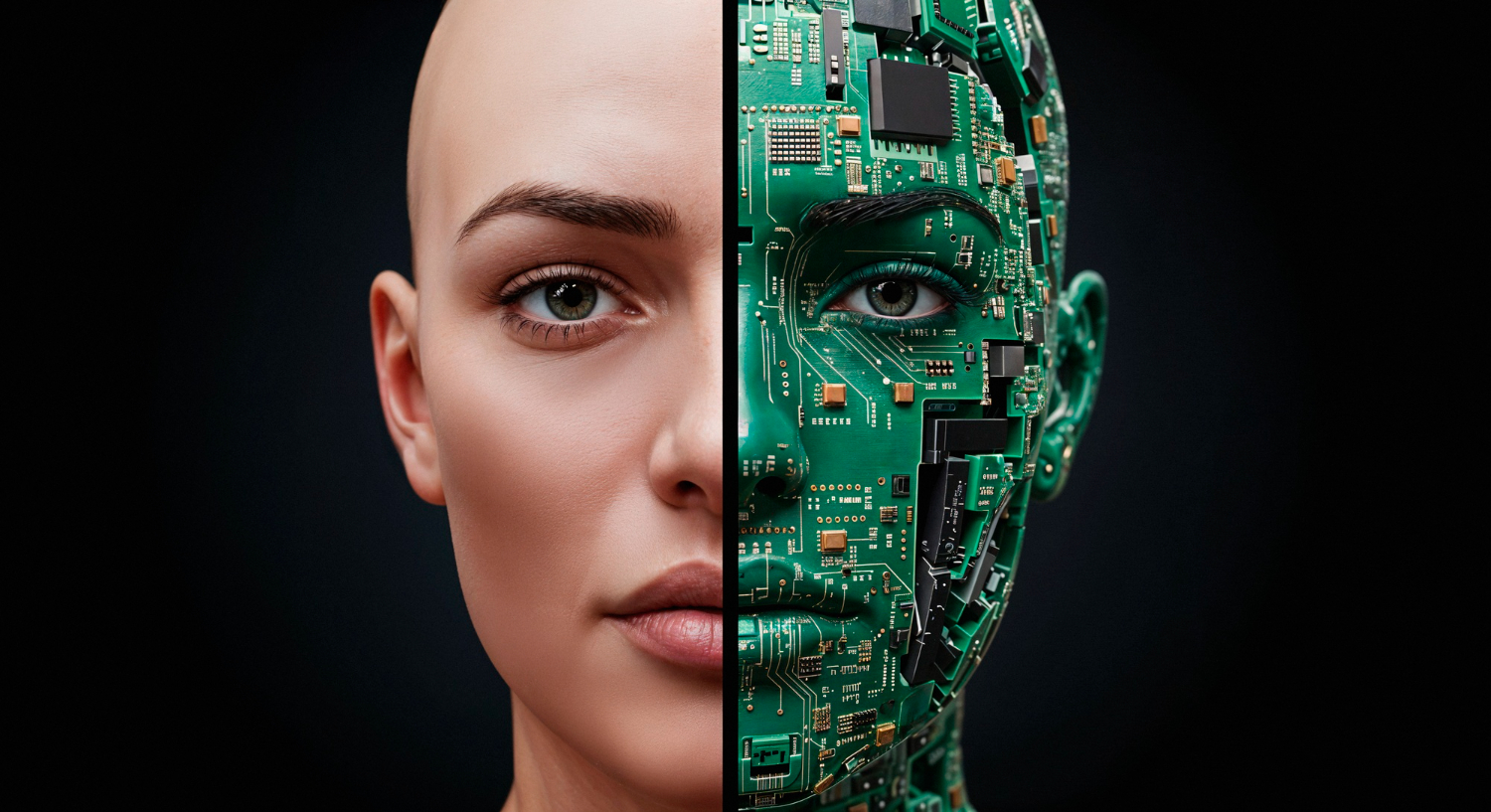Chatbots Across Industries: A Game Changer
Chatbots have become an essential tool for businesses across multiple industries. They use advanced technologies like machine learning and natural language processing (NLP) to handle customer queries, automate tasks, and provide real-time support. From healthcare to finance, businesses are adopting these virtual assistants to enhance customer service and streamline their operations.
As chatbots become more intelligent, they are increasingly able to perform a wider range of tasks, from answering basic questions to processing transactions and offering personalised recommendations. The ability to learn from interactions allows them to become more efficient over time, reducing human intervention and lowering costs for businesses.
How Do Chatbots Work?
Chatbots use advanced algorithms to simulate human conversations. They are designed to respond to user inputs by analysing the text, interpreting the context, and providing relevant answers. These bots often rely on generative models, which allow them to craft responses that sound more natural, rather than following predefined scripts.
NLP plays a crucial role here, as it enables the bots to understand language beyond simple commands. It can process complex sentence structures and understand the intent behind words, making the interaction feel smoother. Chatbots can also be customised for specific industries or tasks, using specialised data to improve their accuracy and relevance.
Some chatbots are built on open-source platforms, which means businesses and developers can tailor them to fit their exact needs. This flexibility allows for chatbots to be adapted across different sectors, from customer support to automated transaction processing.
Customer Service Transformation
In customer service, chatbots have become invaluable. They offer instant help and reduce wait times, making the customer experience more efficient and satisfying. Unlike traditional customer support, these bots are available 24/7, handling large volumes of queries without breaks or delays. This ability is especially useful for global businesses that deal with customers in different time zones.
By automating routine questions like account inquiries or product information, chatbots free up human agents to focus on more complex issues. This balance between automation and human interaction improves the overall customer service quality. Over time, bots learn from past interactions and continuously improve their performance, providing even more precise answers.
How can AI tools improve customer service and satisfaction?
Chatbots in Healthcare
Healthcare has seen significant benefits from the use of chatbots. They assist with scheduling appointments, providing health advice, and managing patient records. These bots can also help patients monitor their symptoms and offer preliminary health advice based on their inputs. By reducing the need for face-to-face consultations for minor concerns, chatbots help ease the burden on healthcare professionals.
In addition to basic queries, healthcare bots can remind patients about medication schedules or upcoming appointments. This type of assistance ensures patients stick to their treatment plans and stay in touch with their healthcare providers.
As chatbots continue to develop, they are expected to take on more responsibilities in healthcare, such as diagnosing simple health conditions based on symptoms or monitoring chronic conditions.
Eat Right for Your Body with AI-Driven Nutritional and Supplement Guidance
Chatbots in Finance and Banking
The financial industry has embraced chatbot technology to enhance customer service and security. These bots can manage a wide range of banking tasks, such as checking balances, processing transactions, and answering questions about loans or accounts. Their ability to handle routine tasks allows human employees to focus on more specialised services.
Chatbots in banking also play a role in fraud detection. By analysing transaction patterns, they can detect suspicious activity in real-time and alert customers or bank personnel. This helps prevent fraud before it escalates, protecting both businesses and customers from potential losses.
The convenience of automated support makes it easier for customers to manage their finances and reduces the strain on banking staff, especially during peak periods.
Banking Beyond Boundaries with AI’s Magical Shot
Retail and E-commerce
Retailers have adopted chatbot technology to improve customer interactions and drive sales. These bots are integrated into online shopping platforms, helping customers search for products, make recommendations, and assist with the checkout process. Their role in retail extends to answering product questions, tracking orders, and providing personalised shopping experiences based on past purchases.
In e-commerce, chatbots have reduced the rate of abandoned shopping carts by engaging customers who may need assistance during their shopping journey. The bots’ real-time responses make the shopping process smoother, ensuring that customers feel supported at every step.
Additionally, bots can be integrated with social media platforms, where they engage with customers, answering queries and providing information about promotions or new products. This helps businesses maintain a consistent and reliable presence across multiple channels.
The AI Innovations Behind Smart Retail
Chatbots in Travel and Hospitality
The travel and hospitality sectors have adopted chatbot solutions to streamline booking processes and offer real-time travel assistance. These bots help customers book flights, hotels, and even recommend travel itineraries. They can assist with itinerary updates, cancellations, or changes to travel plans, reducing the stress involved in managing travel arrangements.
In hotels, chatbots help guests with room service orders, booking amenities, or requesting information about local attractions. They provide a personalised experience without the need for human staff to be available at all times.
By improving the customer experience, chatbots contribute to higher satisfaction rates in the travel industry, making it easier for businesses to meet the needs of their clients.
The role of AI in the travel and hospitality industries?
Chatbots in Education
In the education sector, chatbots are used to assist students with administrative tasks, such as registering for courses or accessing study materials. They also help teachers by managing grading systems, sending reminders about assignments, or offering personalised learning recommendations based on a student’s progress.
By reducing the administrative workload on educators, chatbots allow them to focus more on teaching. They also provide students with instant answers to frequently asked questions, improving the overall learning experience.
AI Smartening the Education Industry
Alan Turing’s Influence
The development of chatbots is rooted in the work of Alan Turing, who first explored the idea of machines mimicking human intelligence. His concept of the Turing Test remains relevant today, with modern chatbots continuously improving in their ability to engage in human-like conversations.
While most current chatbots are not yet sophisticated enough to pass the Turing Test, advancements in machine learning and NLP suggest they are moving closer. These technologies make bots more adaptable, enabling them to handle increasingly complex interactions with minimal human intervention.
The Role of AI-Powered Systems in Task Automation
Artificial intelligence (AI) has made significant strides in task automation, transforming how businesses handle specific tasks. AI-powered systems have become integral to various industries, allowing organisations to streamline operations and boost efficiency.
These systems rely on AI models trained to perform specific tasks with accuracy and speed, eliminating the need for manual intervention. For instance, generative AI is widely used in content creation, design, and other creative fields. By leveraging large datasets, these models can generate unique outputs such as text, images, or even video content. This ability to autonomously generate content tailored to business needs has significantly reduced the workload for human employees.
In industries like healthcare, AI-powered systems can take over administrative duties, such as patient record management and appointment scheduling. These models can also assist in diagnostics by analysing medical data and providing insights.
In finance, AI can automate routine processes like transaction monitoring, fraud detection, and risk assessment. These systems can process large volumes of data quickly, identifying patterns and anomalies that might go unnoticed by human workers. The use of generative AI extends even further, helping financial institutions create personalised reports and customer insights.
The power of artificial intelligence in automating specific tasks lies in its flexibility. AI systems can be fine-tuned to match industry-specific requirements, adapting to various workflows and challenges. Whether it’s customer service chatbots, supply chain optimisation, or predictive analytics, AI solutions can be integrated into existing systems to offer unparalleled accuracy and efficiency. As businesses continue to adopt AI-powered solutions, the impact on productivity is clear, enabling companies to focus on innovation and strategic growth.
Future of Chatbots: Beyond Customer Service
Chatbots are evolving beyond simple customer support roles. They are being used for tasks such as data collection, employee onboarding, and internal communication within companies. Their ability to integrate with other AI technologies allows them to perform more complex roles, such as virtual project management or technical support.
As AI research continues, chatbots will become even more sophisticated, helping businesses across sectors improve efficiency, reduce costs, and provide better services to their customers. The ability to manage tasks independently makes them a valuable asset for businesses looking to automate their operations.
TechnoLynx Can Help
At TechnoLynx, we understand the transformative power of chatbots and how they can benefit businesses across industries. Our team specialises in developing tailored AI solutions that meet the unique needs of your business. We use advanced machine learning and natural language processing to create bots. These bots can handle tasks quickly and accurately.
Our solutions can help with real-time customer support, help with administrative tasks, and can be integrated into your existing platforms for seamless interaction. No matter if you work in healthcare, retail, finance, or another field, we can create solutions for you. Our solutions will enhance your operational efficiency and improve your customer experience.
Partner with TechnoLynx to build cutting-edge chatbot systems that will set your business apart in a competitive market. Let us help you unlock the full potential of chatbots for your organisation’s success.
Image credits: Freepik













